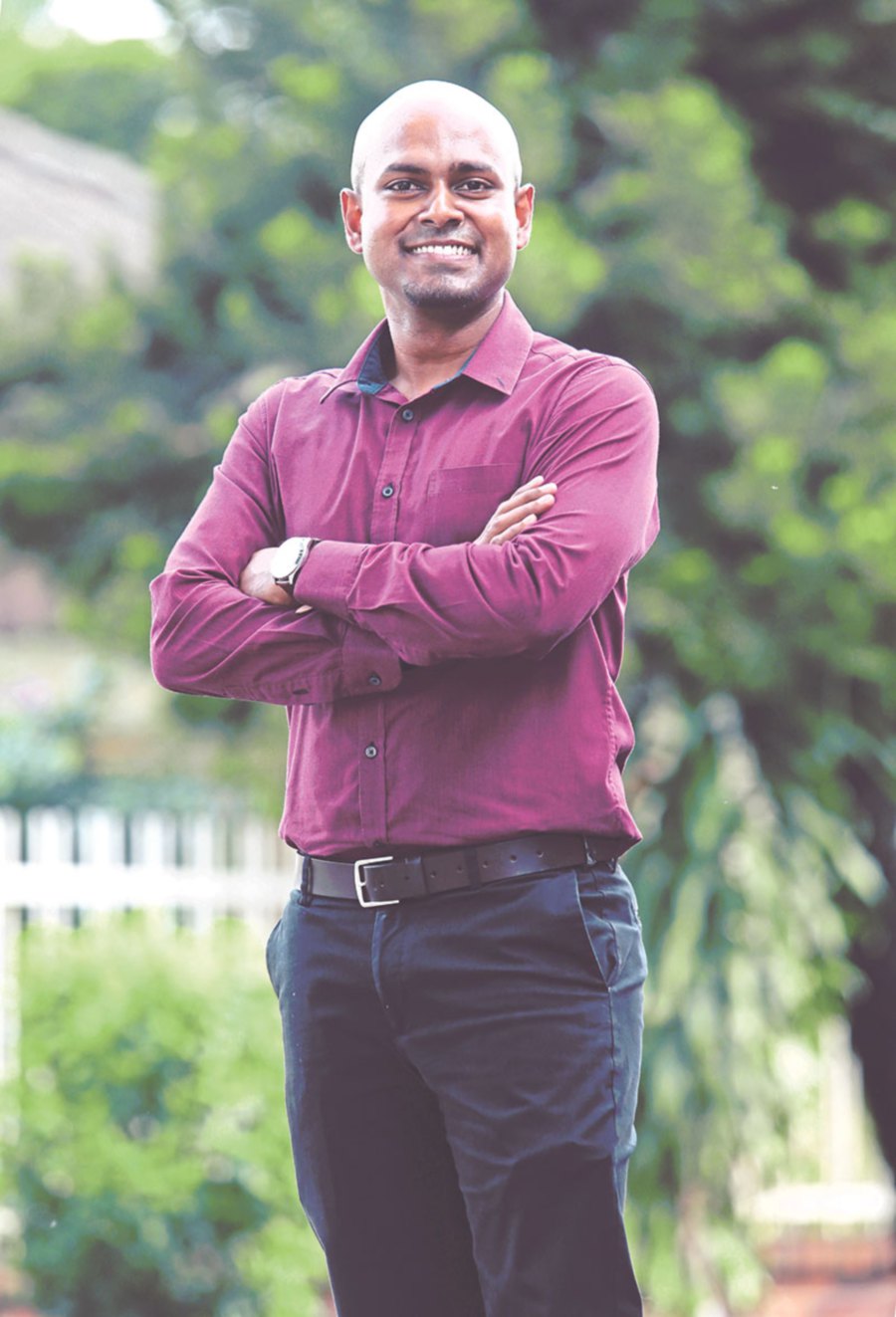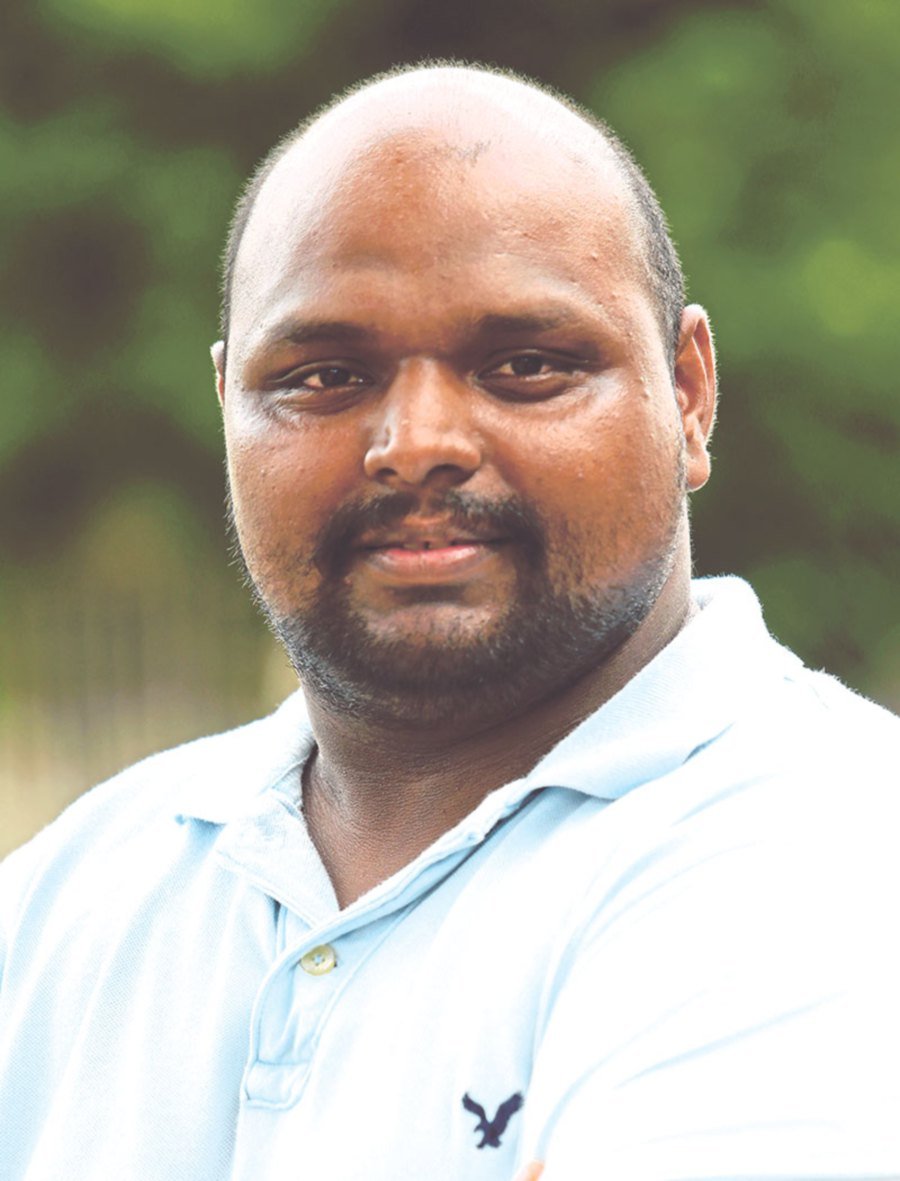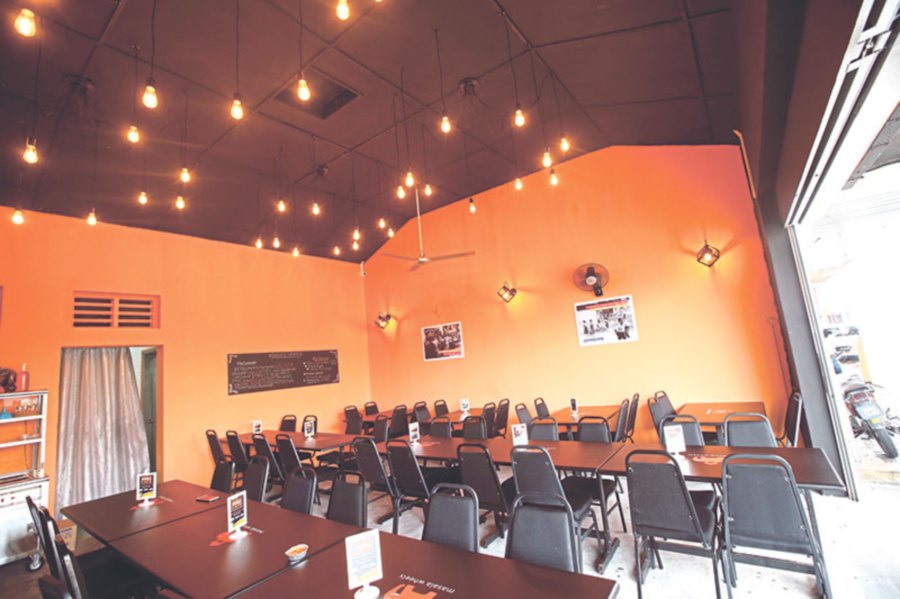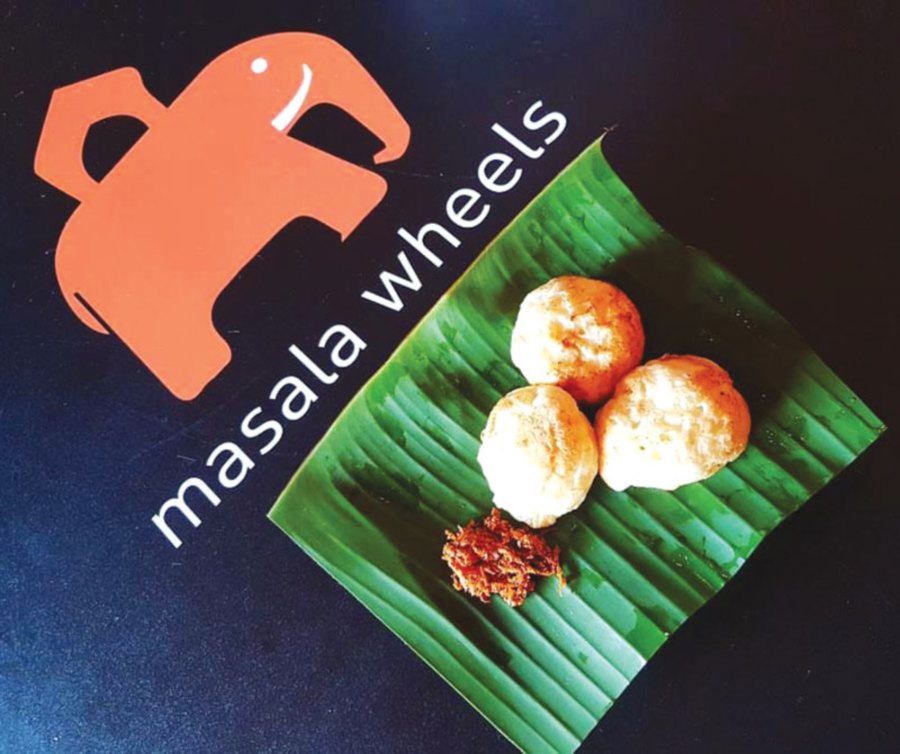gn4id:24081004
THE cruelty of the afternoon heat doesn’t deter a crowd lining up outside Masala Wheels — a striking orange truck parked in KLCC’s sprawling grounds. On the back of the truck, a sign reads “The Truck That Cares”. There, city dwellers will cure their hunger pangs for a price you won’t find in the area. For only RM5, these people will be able to fill their tummies with home-cooked Indian grub: briyani, chapatti, vegetables, meat and the curry of the day.
The food served up isn’t cooked by a chef but by single mothers, refugees, high-risk youth and the urban poor who have happily slogged away in the kitchen to earn a living. For the past two years, the social enterprise which has been empowering maginalised groups through food, is taking it to the next level — Masala Wheels is opening a small cafe in the quiet neighbourhood of Old Town, Petaling Jaya.

COMMUNITY KITCHEN
“A Sri Lankan family who lived here for a very long time let us rent out this space,” shares Kuhan Pathy, one of the four co-founders of Masala Wheels. “It’s a simple set up and we still have quite a bit of work left to do with the shop,” he says, looking around the space with the social enterprise’s signature colour splattered on the walls.
He beams with pride as he points out that every fitting in the space was set up by his core team of five people. Like many things in the cafe, including the recognisable food truck parked outside, this same team pays for everything out of their own pockets. “What can we say? We have very understanding spouses!” he remarks, chuckling.
The space also has a large, long kitchen equipped with the necessary cooking utensils. “We call it a borderless kitchen, which means anyone can use this kitchen to prepare meals,” he shares, adding that his team wanted to emulate the concept they came across in the UK. Social enterprises there, such as Unity Kitchen and Kitchens for Good, encourage marginalised groups to empower themselves by teaching them how to combine culinary skills with entrepreneurial approaches. “But of course, it must be a person or group who really are in need of help. So before we agree to anything we have a chat with them to find out what they need.”
The Borderless Kitchen, as he notes is to share, serve and spread authentic recipes while positively transforming communities.
The idea here, adds Kuhan, is for people to learn important skills. “Not just cooking but also serving and communicating with patrons,” he says, before citing an example of a Sri Lankan refugee who cooked up a feast last week. “She prepared her meals here and a certain percentage from what was made that day went to her. After the lunch was over, we encouraged her to come out and speak to patrons, talk about the dishes etc.”
The whole concept, he shares, is about giving those in need a platform to be self-sufficient and independent. “As the saying goes, give a man a fish and you feed him for a day but teach a man to fish and you feed him for life. That’s the approach we’re taking.”

VEHICLE OF CHANGE
For Kuhan and the three other founders — his brother Kumares, and childhood friends Dinesh Pandian and S. Ravin, the new space represents a huge milestone for them. They’ve come a long way since they first started Masala Wheels in October of 2015. “We started off with giving food to the homeless by ourselves, before deciding that there must be a way to help them instead of just feeding them. We were all sitting at the mamak when we decided to stop talking and start doing,” recalls Kuhan. Within two weeks, the group, whom he refers to as “go-getters and movers”, kick-started Masala Wheels.
The four started operating from their mothers’ kitchens and began handing out home-cooked Indian and Sri Lankan food to the homeless. “We invested in one of those small trucks because that’s all we could afford then,” he says of the vehicle, which is similar to that used by tau foo fah (soya bean curd) or fruit rojak sellers.
Masala Wheels would usually park in hot spots for soup kitchens in the city — Medan Tuanku, Chow Kit and Kota Raya. But soon enough, they realised that complacency had begun to set in among the people who were getting food for free. “Sometimes, there’re too many soup kitchens going to the same area and the homeless become too dependent on getting free meals,” confides Kuhan.
But it was there that Ravin, the CEO of Masala Wheels, started to converse with the people on the ground, something the founders consider extremely important. “You won’t know what people want or need till you talk to them. You have to put yourself in their shoes to see things from their perspective. How do you find a solution without knowing what the problem is?” poses Kuhan.
The founders, who all have full-time jobs, then decided to go into social franchising — investing in a bigger, better-equipped food truck which could be rented for a minimal fee by marginalised people. The truck can be rented on different days for up to three months but past that, Masala Wheels encourages them to be on their own two feet.
“Being a social enterprise is all about solving social issues in a sustainable manner,” says Kuhan, sharing that the group gets a lot of advice from their fathers who are also entrepreneurs. “We observed that there were many organisations that did projects which had no long-term effect on the community. You can’t call yourself a social entrepreneur if it’s just a one-off event or doesn’t empower the community to create their own opportunities.”

COOKING UP SUCCESS
Most people think of homeless people when we think of marginalised groups. But as Kuhan points out, there are other groups who need a lot of help, like single-mothers and the urban poor. “The one thing all these marginalised people have in common is the lack of opportunities,” says Kuhan, citing examples of the high-risk youth he works with. He points to a young boy wiping tables in the cafe, who was once involved in gangsterism.
The boy, barely 16 and a school dropout, was sent to Masala Wheels by an organisation they work with regularly, MySkills, a non-governmental organisation which helps troubled youth. “Youths involved in social ills are the most challenging to work with because they have been born into a cycle of violence and gangs. It’s all they know. They want to be leaders of gangs to be respected. So here, we teach them how to be leaders of themselves. They need to know that they don’t need to be part of a gang to be successful,” says Kuhan.
He cites Ravin as a shining example. “He came from a very vulnerable place in his life but he turned it around.”
Ravin, now runs an Indian restaurant in the Klang Valley. “He didn’t speak a word of English and now he’s giving live interviews on TV in English! Inspiration to the marginalised comes from leadership. He’s an inspiration to others who look up to him.”
FUEL FOR THE MIND
Last year, Masala Wheels was chosen by the United States Embassy to represent Malaysia at the Global Entrepreneurship Summit in San Francisco. “It was a dream come true,” says Kuhan. “It shows that even a little transformation in your locality could be a model to be emulated at a global level.”
The sun is sinking into the horizon when Kuhan starts to pull down the shutters of Masala Wheels cafe. “Food is fuel for the mind,” Kuhan confides, observing the young boy now chatting with Ravin. “I volunteered at a refugee school during my university days. It was then that I realised I couldn’t teach someone if that person was hungry.”
Tomorrow will be another day of budgeting and dividing his time between Masala Wheels and his full-time engineering job. But for Kuhan and his team, seeing someone like the 16-year-old boy growing in confidence is definitely worth every minute and every penny spent.
MASALA WHEELS
Where 2, Jalan 1/3, Seksyen 1, Petaling Jaya, Selangor
Website masalawheels.com





